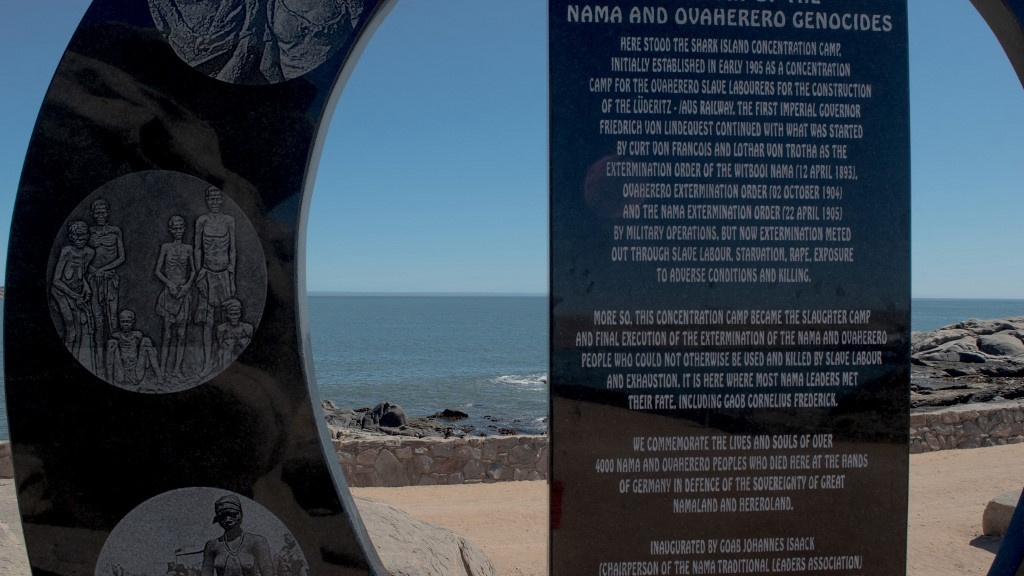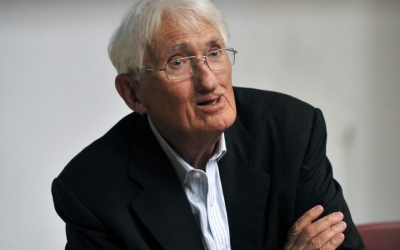War on Gaza: How Hegel's racist philosophy informs European Zionism

Critic Joseph Fahim’s latest dispatch from the Berlin Film Festival (Berlinale) is headlined: “A car crash Berlinale concludes with a German witch hunt against pro-Palestine filmmakers”, referencing two directors who dared to speak the obvious truth about Israel’s racist, apartheid foundations.
“An anti-Palestinian storm spearheaded by German politicians and local press sought to prosecute any voice that dared criticise Israel,” Fahim writes. “What I witnessed was not merely ugly, inhumane or unprofessional, it was outright fascistic.”
One German official, Culture Minister Claudia Roth, later said that when she was seen clapping for the two directors, she only did so for the Israeli filmmaker and not his Palestinian colleague.
This is consistent with the German position on the current genocide Israel is perpetrating in Palestine. When South Africa formally accused Israel of genocide at the International Court of Justice (ICJ) in January, Germany rushed to defend Israel and shield it from global condemnation.
Namibia’s president swiftly reminded Germany of its own genocidal history in Africa, noting that it has “yet to fully atone for the genocide it committed on Namibian soil”, referencing the massacre of more than 70,000 Herero and Nama people between 1904 and 1908. What Israel has been doing in Palestine takes a page from the textbook Germany wrote a long time ago.
New MEE newsletter: Jerusalem Dispatch
Sign up to get the latest insights and analysis on Israel-Palestine, alongside Turkey Unpacked and other MEE newsletters
Germany’s racist legacy hit yet another hurdle this month when Nicaragua took it to the ICJ on charges of violating the Genocide Convention by funding Israel’s war on Gaza. “By sending military equipment and now defunding [the UN agency for Palestinian refugees] which provides essential support to the civilian population, Germany is facilitating the commission of genocide,” Nicaragua said in its filing.
What do South Africa, Namibia and Nicaragua have in common? Not just their solidarity with the noble Palestinian cause, but also their own long histories of conquest and dispossession at the hands of European colonial savagery.
History of colonialism
The world at large is narrowing in on the racist European barbarism that has long sold itself as “western civilisation”. To understand the current enthusiasm and vigour with which German officials and media are endorsing Zionism, it is necessary to remember the prolonged German history of colonialism and imperialism in Africa.
Also notable is the particular role that leading German philosophers, such as Georg Wilhelm Friedrich Hegel (1770-1831), played in the bold and vulgar racism that informs Germany's current disregard for human decency, best manifested in the fervent Zionism of senior philosopher Jurgen Habermas.
Follow Middle East Eye's live coverage of the Israel-Palestine war
We need a serious reconsideration of the history of the German Third Reich, as Nazi ideologues designated it. The horrors of Nazi Germany and the slaughter of millions of people during World War II were not an aberration in German history, if we recall Germany’s genocidal record in Africa.
In this context, we must consider the extraordinary body of scholarship accumulated over the last few decades on German colonialism and imperialism, and the equally compelling body of scholarly work on the structural racism written into the fabric of the towering German philosopher Hegel.
Racism was definitive to the entire philosophical apparatus of Hegel and many other German and European philosophers
In the 2017 essay “German Colonialism and Imperialism from Bismarck to Hitler”, historian Volker Berghahn sums up the vast body of scholarship over the last several decades that “has brought historians together with political and social scientists as well as scholars of literature, film, gender, memory, and emotions” to expose the horrors of German colonialism in Asia, the Pacific and Africa during the 19th and 20th centuries.
The essay describes major paradigm shifts in the study of German colonialism and imperialism, and of “continuity in modern German history from ‘Bismarck to Hitler’”, as another historian, John C G Rohl, put it. Berghahn’s essay also notes: “Abandoning his earlier opposition to overseas colonies, Hitler now ordered that a Ministry be constituted with a budget of 6.3 million marks for 1940, from which language courses in Swahili for the future administrators in Africa were to be paid.”
The world outside Germany should pay closer attention to this body of scholarship, so that next time a German Zionist supports the genocide of Palestinians, they know the origins of this murderous zealotry.
Chief ideologue
In The Philosophy of History, Hegel considers four stages in world history: Oriental, Greek, Roman and German. In this scheme, he views Africa as lacking in morality, politics and religion. In the 1993 essay “Hegel and Africa”, author Ronald Kuykendall exposes Hegel’s violently Eurocentric view of the world, and reverses it by placing Africa at the centre of his critique of Hegel.
For Hegel, Africa is “the land of childhood, which lying beyond the day of self-conscious history, is enveloped in the dark mantle of Night”. He assures his European readers: “In Negro life, the characteristic point is the fact that consciousness has not yet attained to the realization of any substantial objective existence.” The African person is thus a “natural man in his completely wild and untamed state”.
We might clearly see Hegel as the chief ideologue of German colonial conquest and imperial savagery across an entire continent.
In another major essay, “Critical notes on Hegel’s treatment of Africa”, author Omotade Adegbindin details the categorical flaws in Hegel’s treatment of Africa, placing an entire continent of which he knew very little outside the frame of history: “The Hegelian dialectic is a project aimed at the exclusion of Africa from the universal history, leading to certain problematic theses like the Hegelian thesis on slavery, which is connected to the problem of class formation and his concept of the state.”
In a more recent article, “Exploring the Metaphysics of Hegel’s Racism” (2022), Daniel James and Franz Knappik argue that Hegel’s position on race “is appropriately classified as racist, that it postulates innate mental deficits of some races, and that it turns racism from an anthropological into a metaphysical doctrine by claiming that the division of humankind into races … is not a brute fact, but follows a ‘higher necessity’”.
And in her pioneering book Hegel, Haiti, and Universal History, published in 2009, critical theorist Susan Buck-Morss demonstrates how the struggles of peoples in enslaved and brutalised continents were fodder for Hegel’s philosophy. She speculates that Hegel’s idea of “master-slave” might in fact have been rooted in his reading of the Haitian revolution.
It is through the Haitian slave revolt and revolution that it finally dawns on Hegel that slavery is not a state of nature, but still he failed to see it is. The focus of our thinking must forever be shifted away from a European philosopher’s speculative fantasies and towards actual facts - from how Hegel saw Haiti, to how Habermas sees Gaza.
At issue is not an accidental, negligible or “unfortunate” streak of racism in the works of a stellar European philosopher. With the calamities Israel continues to inflict on Gaza in full view of the world, we are way beyond such liberal meanderings. Racism was definitive to the entire philosophical apparatus of Hegel and many other German and European philosophers. The whole system must be brought down, like those racist statues we have brought down in Europe and its settler colonies around the world.
The views expressed in this article belong to the author and do not necessarily reflect the editorial policy of Middle East Eye.
Middle East Eye delivers independent and unrivalled coverage and analysis of the Middle East, North Africa and beyond. To learn more about republishing this content and the associated fees, please fill out this form. More about MEE can be found here.






